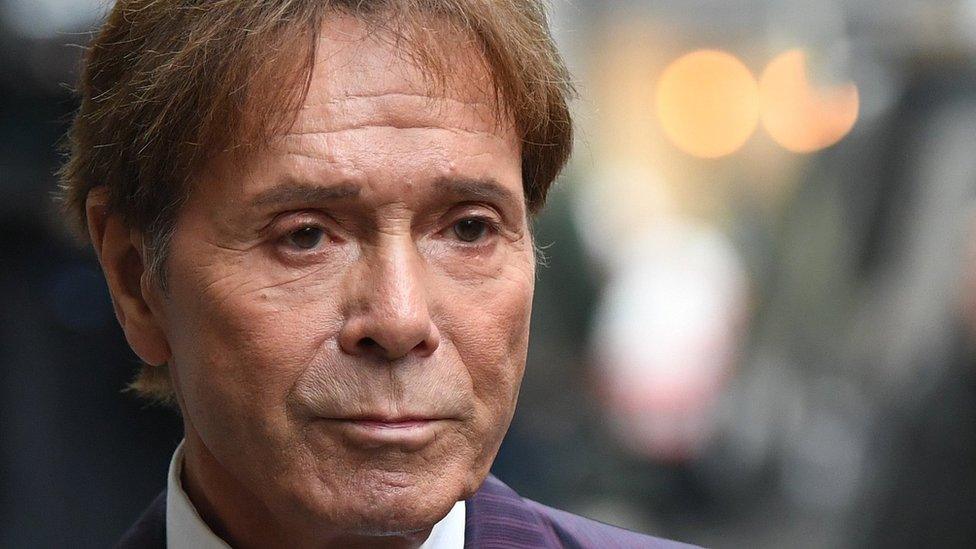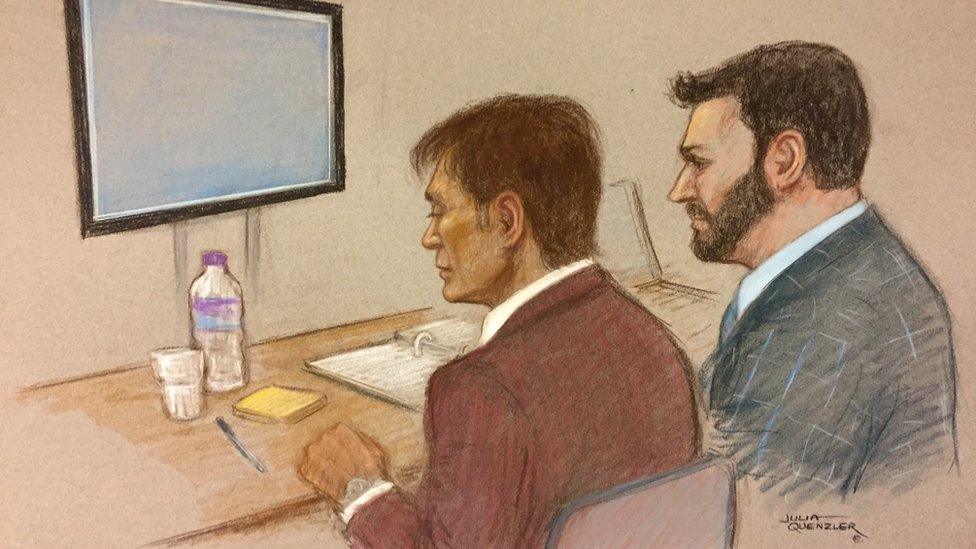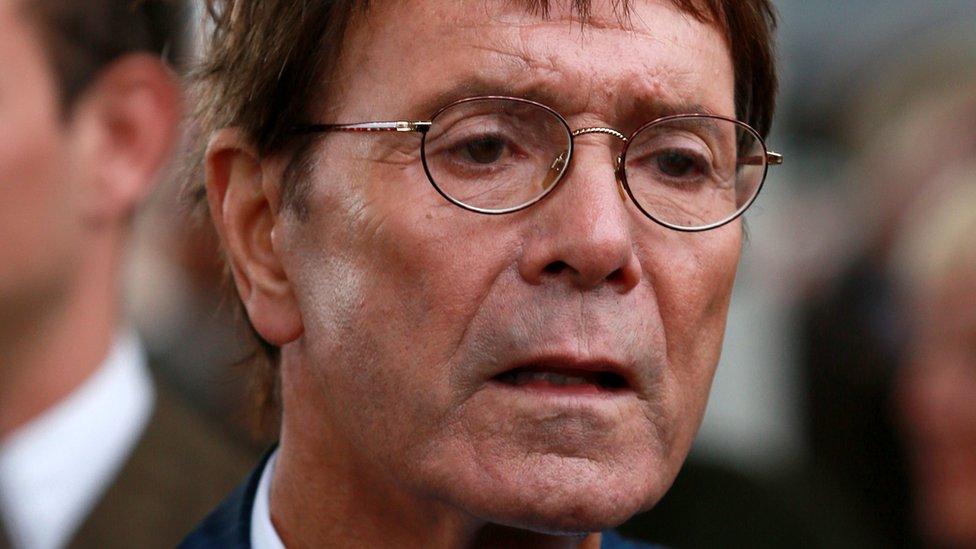BBC Cliff Richard raid coverage was 'invasion of privacy'
- Published

Lawyers for Sir Cliff Richard have told the High Court the BBC's coverage of a police raid on the singer's home was a "very serious invasion" of his privacy.
A helicopter was used in the report to show officers searching the 77-year-old star's Berkshire apartment after a claim of historical sexual assault.
Sir Cliff was not charged with any offence and says he is suing over "profound and long-lasting damage".
The BBC says its coverage in August 2014 was in the public interest.
Its reports of the raid were shown in court where Sir Cliff, who was sitting with his solicitor, is taking action against the corporation for the misuse of private information and breaking data protection rules.
The BBC said it had been given information about a police investigation into a serious criminal offence and had a duty to pass on the information to the public.
Gavin Millar QC for the corporation said it was the BBC's case that Sir Cliff could not have had a "reasonable expectation of privacy" in the situation, even though he may have hoped for that.
In a written statement, Sir Cliff's barrister, Justin Rushbrooke QC, said the BBC used TV cameras to "spy into someone's home" as South Yorkshire Police carried out their raid.
He said: "It is hard to encapsulate in words the sense of panic and powerlessness that must have been induced in him on 14 August 2014 when he realised that the BBC were relaying, instantaneously and indiscriminately around the world, highly sensitive and damaging information concerning himself - all based upon an allegation of serious criminal conduct which he knew to be entirely false."
The judge, Mr Justice Mann, was told by lawyers for South Yorkshire Police that they had agreed to pay Sir Cliff £400,000 to settle a claim he brought against the force, and to cover some of his legal bills.
'Desperate for scoop'
Mr Rushbrooke said the BBC acted in a "highly intrusive" manner and Sir Cliff was entitled to "very substantial" damages or compensation for the "flagrant way" it went about "breaching his rights".
He said: "The fact and the details of the investigation which the BBC published to the world at large, along with the video footage of his apartment being searched, were private information and there was no public interest in the disclosure of this information to the millions of viewers and website readers around the world to whom it was published."

In court

Sketch of Sir Cliff Richard at High Court on 12 April 2018
By Lucy Manning, BBC News
Inside Court 15 the television screens played the news reports showing police searching Sir Cliff Richard's house.
The voice of the BBC reporter told viewers that day in August 2014 that officers were investigating the singer after an allegation of historical sex abuse.
Of course, Sir Cliff was never arrested or charged.
As the pictures played in court Sir Cliff, sitting next to his solicitor, at times closed his eyes to avoid looking at the screens.
He is set to go into the witness box and give evidence to the court on Friday.

Mr Rushbrooke say BBC journalist Dan Johnson had received a tip-off about the raid from a Metropolitan Police source working in Operation Yewtree, the investigation into allegations of historical sex offences.
"This was a case of a journalist making use of information that must have been leaked improperly, indeed unlawfully, by someone within a highly sensitive police investigation," he said.
Mr Rushbrooke added South Yorkshire Police "made clear" that Sir Cliff was not going to be named in a public statement, but the BBC took the decision to name him and film the raid.
He said the BBC news team were "desperate to be the first media organisation to break their story, and this desire not to be scooped was the predominant concern".
"For strong public policy reasons, persons who are under investigation but have not been charged with any offence should not be publicly named other than in exceptional circumstances - circumstances which were not present in this case," the barrister said.
"Moreover, even if there had been some public interest in the fact that the claimant was under investigation, the way that the BBC went about publishing the 'story' was so disproportionate, and so intrusive, as to render it unlawful."
Rights 'were respected'
Lawyers representing the BBC told the judge that the police raid was of "legitimate public interest".
The BBC's defence was also outlined in a written statement presented to the court.
It said journalists had respected Sir Cliff's rights as "the suspect" and the "presumption of innocence".
Addressing the court, Gavin Millar said the case came amid public discussion about a number of prominent male figures in the broadcasting industry being investigated for historical offences.
He said the BBC had exercised the right to freedom of expression to report the allegation being investigated by police against Sir Cliff - a sexual offence against a boy under the age of 16.
It did not overstep the mark, Mr Millar added.
He said the coverage concentrated on the facts of the police search in Sunningdale and chose not to report certain features of the investigation.
- Published12 April 2018
